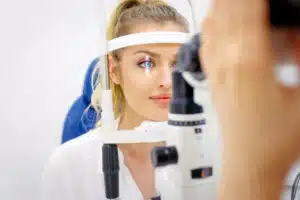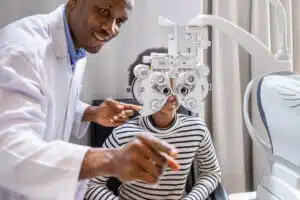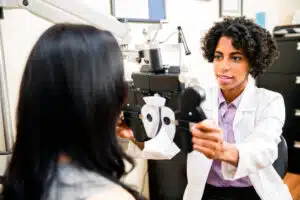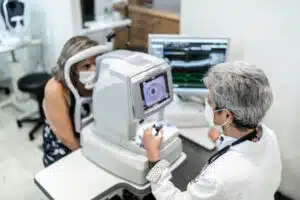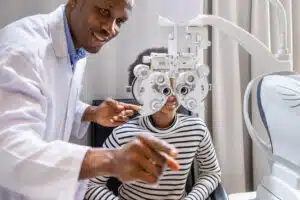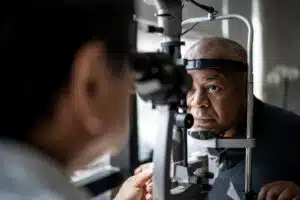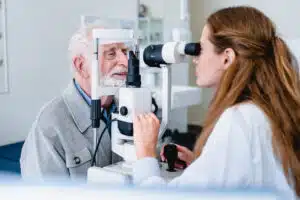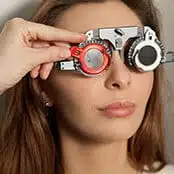Wet macular degeneration is a condition that affects the eyes and can lead to vision loss. It occurs when abnormal blood vessels leak fluid into the retina, damaging the macula, which is responsible for central vision. Someone with wet macular degeneration may experience visual distortions, have reduced central vision, and have difficulty adjusting to low-light…
Blog
The 6 Best Reasons You Should Visit an Optometrist
An optometrist is a healthcare professional who specializes in the examination and treatment of eyesight or vision. Optometrists are trained to diagnose and treat various eye conditions and vision problems. They also prescribe corrective lenses and provide other vision-related services. If you’ve been putting off a visit to the optometrist, it’s time to reconsider. Here…
How to Prevent Your Eyes from Tiring
We all know how it feels when our eyes feel tired. It’s a common problem, especially if you spend a lot of time staring at electronic screens. Whether you’re working on a computer, playing video games, or scrolling through your social media feed, it’s easy to overdo it and strain your eyes. If you find…
5 Things To Consider When Choosing A Diabetic Eye Doctor
Diabetes can cause a number of eye problems, including diabetic retinopathy (damage to the retina), cataracts (clouding of the lens), and glaucoma (increased pressure in the eye). These conditions are considered high-risk for diabetics and can lead to vision loss or blindness, if not treated in a timely manner. If you have diabetes, an important…
How to Choose a Good Eye Doctor
It is important to choose a good eye doctor, because they can help you maintain healthy vision and prevent serious problems with your eyes. If you have pre-existing eye conditions and vision issues, the matter becomes even more critical, because only a highly qualified eye doctor can correct or slow the progression of many eye…
Common Services to Expect in an Eye Care Center
Maintaining eye health involves a lot of work. However, even the most careful patients can still be affected by vision problems. From dryness to nearsightedness, an ophthalmologist can diagnose and treat various conditions affecting the eyes. Knowing what a typical eye care center offers in terms of services can help you better care for your…
What Do They Do at the Eye Clinic?
Many factors contribute to the deterioration of someone’s vision. It may be due to aging, overuse or overexposure to radiation, or other medical conditions. Hence, even though it may be a little intimidating, visiting an eye clinic is a must for everyone. But what exactly do they do at these clinics? Let’stalk about what you…
Optometrist’s Tips for Healthy Eye Care Habits
Our vision is one of the most important components of general health. It is crucial to our perception of our surroundings. Any problem with our vision and normal functioning of the eye can interfere with our independence, mobility, and quality of life. So, it’s important to practice good eye care habits and hygiene. Here, we’ll…
Tips for Choosing the Best Ophthalmologist
Whether you have an eye problem such as cataracts, dry eye, glaucoma, etc., or want to get your eyesight corrected, it’s critical that you choose an ophthalmologist who’s experienced, caring, and compassionate. An ophthalmologist is a doctor who diagnoses, treats, and prevents disorders of the eye. But, with so many ophthalmologists around, how do you…
Five Things You Didn’t Know About Eye Exams
Comprehensive exams with your eye doctor in Washington, MO, are very important, because they let your doctor yield a wealth of information about your eyes, vision, and even overall health. It’s more illuminating than you may have realized! Here are five things you probably did not know about eye check-ups. 1. An eye examination focuses…


